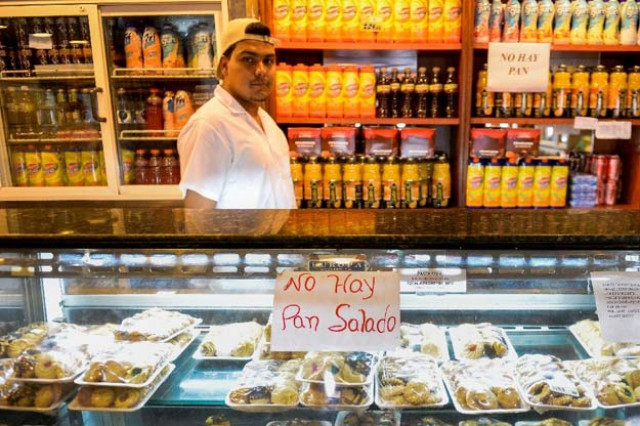Why new price control policy a bad idea?
Policy will lead to market distortion by subsidising consumers at expense of farmers

Since the start of the pandemic, the inflation rate worldwide has been clocking higher than business as usual due to increased money supply by central banks and Pakistan is no exception.
Amid a weaker dollar, declining global production and consumption levels, the Pakistan Tehreek-e-Insaf (PTI) government decided to boost exports by allowing the overvalued rupee to float freely.
It worked for a while and to some extent as global supply chains were disrupted but now the shopping spree seems to be over.
As the rupee has already lost more than 50% of its value, the trade deficit is rising again as fuel imports are getting expensive and exports are not growing anymore, making it a double whammy of high inflation and worsening trade deficit.
As per the proposed State Bank Amendment Bill 2021, the central bank won’t be responsible for everyday inflation and won’t be changing policy rate to combat the rising commodity prices. This has put the government in a fix as it may resort to draconian price controls for political reasons.
Earlier, the government’s finance czars planned to cut subsidies on commodities and replace them with direct cash transfers under the Ehsaas programme but the unfortunate sugar fiasco left them with little political space to do that.
Now, the federal government has introduced a new policy, the Price Control and Prevention of Profiteering and Hoarding Order 2021, as a desperate measure to freeze commodity prices by effectively enforcing price ceilings.
By giving executive powers to control prices and, hence volumes indirectly, this will lead to new distortions in commodity markets by subsidising consumers at the expense of farmers.
Like the sugar industry, where production is regulated through strict quotas and continuous monitoring of inventory levels, the new policy will now apply to commodities included in Part I of the Schedule, which not only include items such as tea, milk, vegetables, pulses and meat but also materials such as bricks, cement and pesticides.
The rationale behind such controls is the belief of policymakers that capping prices will ensure supply and affordability for all, but this is not how economics work.
Capping prices help consumers, but it offers less incentive to producers and hence leads to suppressed supply, inferior quality and artificial shortages, pushing prices higher ultimately.
By imposing a market structure based on frozen prices, we will see black markets flourish while there will be long queues to buy just one kg of substandard sugar against one’s CNIC from utility stores.
Officials say that the current price spiral makes a case for emergency measures to intervene in commodity markets and that laws to enforce price caps are only a temporary short-term solution.
However, the policy is as vague as it gets and aims to fix prices of commodities using a cost-plus method after conducting consultative meetings with the representatives of key producers.
This means the producers can simply pass high cost of doing business to consumers. These large producers have an incentive to inflate costs by building large warehouses and by employing more staff because they can simply command a higher price while their ‘margins’ remain the same.
So, in the absence of a price discovery mechanism based on bidding, the large producers, who will lobby the government, won’t be punished by market forces for their inefficiencies.
In a nutshell, the new policy is clearly a step back from efforts to liberalise the market over the years and will become part of the problem instead of the solution.
Market prices are a signal of scarcity and hence encourage correction, but price control laws scramble that signal, making it a more serious problem in the long run.
When we talk about inflation hitting our kitchens, the problem is not to take just excessive profit out of the equation, the policymakers need to remove dead weights from supply chains by taking steps such as mandatory crop insurance, interest-free access to credit for small producers and the use of buffer stocks to stabilise volatile commodity prices.
Last but not the least, there is an urgent need to reassess the minimum support price system by looking at its impact on agricultural output and productivity.
The writer is a Cambridge graduate and is working as a strategy consultant
Published in The Express Tribune, September 6th, 2021.
Like Business on Facebook, follow @TribuneBiz on Twitter to stay informed and join in the conversation.



















COMMENTS
Comments are moderated and generally will be posted if they are on-topic and not abusive.
For more information, please see our Comments FAQ